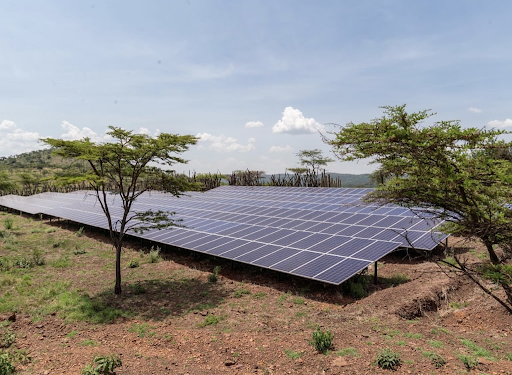Tanzania, a country endowed with abundant sunlight, is making significant strides in renewable energy by harnessing solar power to drive sustainable development initiatives. In a recent announcement, government officials revealed plans to expand solar energy projects across the nation, marking a pivotal moment in Tanzania’s journey towards a cleaner and more resilient energy future. In this article, we delve into the details of Tanzania’s solar power initiatives and their implications for the country’s sustainable development agenda.
1. Expanding Access to Clean Energy
One of the primary objectives of Tanzania’s solar power initiatives is to expand access to clean and reliable energy sources, particularly in rural and underserved areas. By leveraging the country’s ample sunlight resources, solar energy projects aim to provide electricity to off-grid communities, schools, health centers, and businesses, thereby improving livelihoods, enhancing educational opportunities, and promoting economic growth.
2. Advancing Energy Transition Goals
Tanzania’s commitment to solar power aligns with its broader energy transition goals, which seek to reduce reliance on fossil fuels, mitigate greenhouse gas emissions, and promote environmental sustainability. By investing in renewable energy infrastructure, such as solar photovoltaic (PV) systems and solar mini-grids, Tanzania aims to diversify its energy mix, enhance energy security, and foster resilience to climate change impacts.
3. Supporting Economic Development
The expansion of solar power in Tanzania has significant implications for economic development, both at the national and local levels. Solar energy projects create employment opportunities in construction, installation, operation, and maintenance, thus stimulating economic activity and driving job creation. Moreover, by reducing reliance on imported fossil fuels, solar power contributes to cost savings, strengthens energy independence, and promotes local entrepreneurship in the renewable energy sector.
4. Empowering Communities and Promoting Social Equity
Access to clean and affordable energy is a catalyst for social equity and empowerment, particularly for marginalized and vulnerable populations. In Tanzania, solar energy projects empower communities by providing them with reliable electricity access for lighting, cooking, refrigeration, and powering small-scale businesses. This enhances quality of life, improves health outcomes, and promotes gender equality by alleviating the burden of energy poverty on women and girls.
5. Fostering Environmental Sustainability
Solar power plays a crucial role in fostering environmental sustainability by reducing greenhouse gas emissions, mitigating air and water pollution, and conserving natural resources. Unlike fossil fuels, solar energy is clean, renewable, and inexhaustible, making it a sustainable alternative for meeting Tanzania’s growing energy demand while minimizing environmental impacts. By embracing solar power, Tanzania demonstrates its commitment to combating climate change and preserving its natural heritage for future generations.
Conclusion
In conclusion, Tanzania’s embrace of solar power represents a significant milestone in its quest for sustainable development and energy transition. By harnessing the abundant sunlight resources available in the country, Tanzania is poised to unlock economic opportunities, improve livelihoods, and protect the environment for present and future generations. As solar energy continues to gain momentum as a key pillar of Tanzania’s energy landscape, the country stands to reap the benefits of a cleaner, more resilient, and inclusive energy future.




